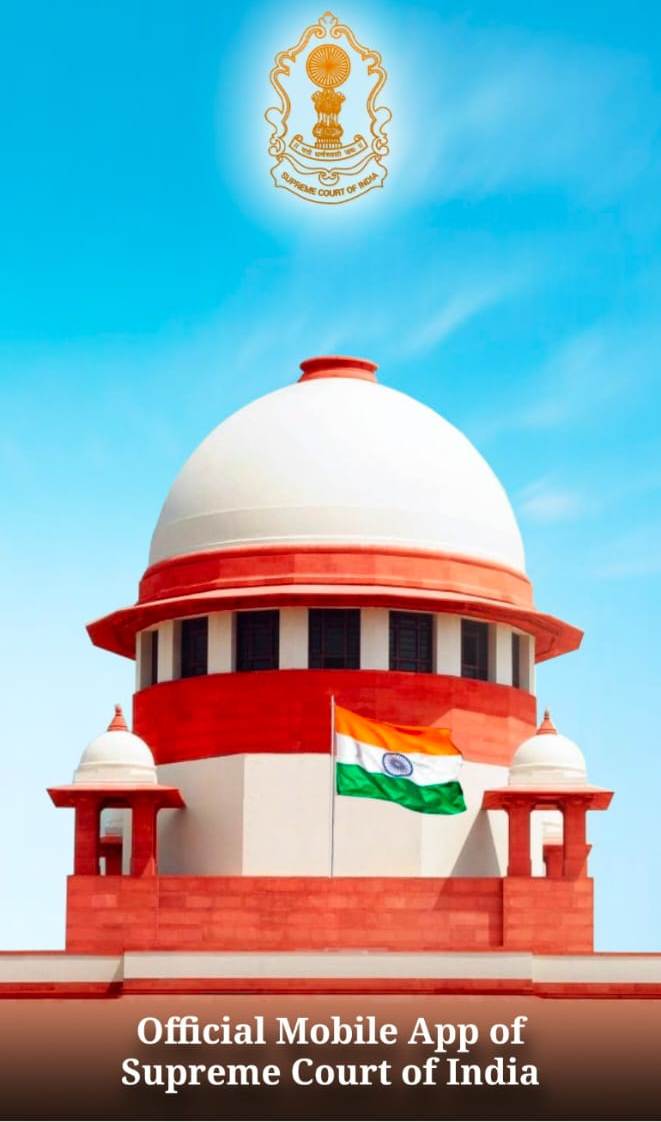The Supreme Court today received a review petition challenging its October 17 verdict regarding recognising the right of same-sex couples to enter into marriages or have civil unions.
The review petition was filed by Udit Sood, who was one of the petitioners in the original case.
The Constitution Bench of five judges on October 17, in an unanimous verdict, had refused to grant legal recognition to same-sex marriages, while holding that same-sex couples were not be discriminated or harassed.
The Apex Court was divided over granting adoption rights to homosexual couples with a 3:2 verdict against giving such entitlement.
The Bench was unanimous also in saying that the right to marry cannot be given the weightage of a fundamental right.
Deivering its much-awaited verdict on the petitions seeking legal recognition for same-sex marriages, the Constitution Bench of Chief Justice of India D.Y. Chandrachud, Justice Sanjay Kishan Kaul, Justice S. Ravindra Bhat, Justice P.S. Narasimha and Justice Hima Kohli had passed the verdict on around 20 petitions.
The judgment was authored by four judges, with CJI Chandrachud reading parts of his order, followed by Justice Kaul, Justice Bhat and Justice Narasimha. Justice Kohli agreed with Justices Bhat and Justice Narasimha.
Justice Bhat, Justice Narasimha and Justice Kohli ruled against granting adoption rights, while the CJI and Justice Kaul were for granting the rights.
Broadly, as CJI Chandrachud said in the beginning while reading out the parts of his order, there was a degree of agreement and a degree of disagreement on how far the Apex Court had to go.
It held that the law did not recognise the right to marry or the right of same-sex couples to enter into civil unions till the Parliament made laws enabling the same.
The CJI said that he has dealt with the issue of judicial review and separation of powers. The Doctrine of separation of powers meant that each of the three organs of the state performed distinct functions. No branch could carry out any others’ function, he added.
The Apex Court said that the Union of India suggested that this Court would violate the doctrine of separation of powers if it determined the list. But the doctrine of separation of powers did not bar the power of judicial review, it added.
The CJI said that queerness was neither urban nor elitist. Summing up, he said that the Apex Court was recording the statement of the Solicitor General that the Union Government would constitute a committee to decide on the rights and entitlements of persons in queer unions.
“The Government of India should proceed with its committee, headed by the Cabinet Secretary, to address the raft of concerns of same-sex couples, including ration cards, pension, gratuity and succession.”
Justice Bhat putting his views forward added that Court cannot create a legal framework for queer couples as the duty for the same lies with the legislature to do as there are several aspects to be taken into consideration.
Justice Bhat added that denial of benefits such as a PF, ESI, pension etc to queer partners may have an adverse discriminatory effect.
The Justice said while addressing these concerns mean a range of policy choices which involves multiple legislative architecture.
Justice Bhat said that he along with other on board judges agree with the CJI on the right of transgender persons in heterosexual relationships to marry as per existing laws.
Justice Bhat said he had the benefit of perusing the concurring opinion of Justice Narasimha and endorse it fully.
Justice Narasimha said it would not be constitutionally permissible to recognize a right to civil union mirroring a marriage.
Justice Narasimha agreed with the views of Justice Bhat’s view on the constitutionality of Central Adoption Regulatory Authority (CARA) regulations, CJI Chandrachud disagreed.
On CARA regulations, CJI Chandrachud said while the Union of India has not proved that precluding unmarried couples from adopting is in the best interest of the child, CARA has exceeded its authority in barring unmarried couples.
“The differentiation between married and unmarried couples has no reasonable nexus with CARA’s objective – the best interests of the child. It cannot be assumed that unmarried couples are not serious about their relationship.”
CJI Chandrachud said there is no material on record to prove that only a married heterosexual couple can provide stability to a child.
“CARA Regulation 5(3) indirectly discriminates against atypical unions. A queer person can adopt only in an individual capacity. This has the effect of reinforcing the discrimination against queer community,” he said.
The CJI said the law cannot assume that only heterosexual couples can be good parents. This would amount to discrimination. So the adoption regulations are violative of the Constitution for discrimination against queer couples.
As a result, the CARA circular is violative of Article 15 of the Constitution.
The CJI said he has a disagreement with the judgment of Justice Bhat. “Contrary to Justice Bhat’s judgment, directions in my judgment does not result in the creation of an institution, rather they give effect to the fundamental rights under Part 3 of the Constitution. My learned brother (Justice Bhat) also acknowledges that the State is discriminating against the queer community but does not exercise the powers under Article 32 to alleviate their plight.”
The CJI said Justice Bhat acknowledges the discrimination against the queer couples but does not issue directions. I cannot come to terms with such an approach. The CJI also noted that Justice Bhat had failed to ascertain if the CARA regulation is discriminatory.
Justice Narasimha added that the impact of the legislative framework in this case requires deliberative exercise and for the same, the legislature is entrusted to do so constitutionally.


